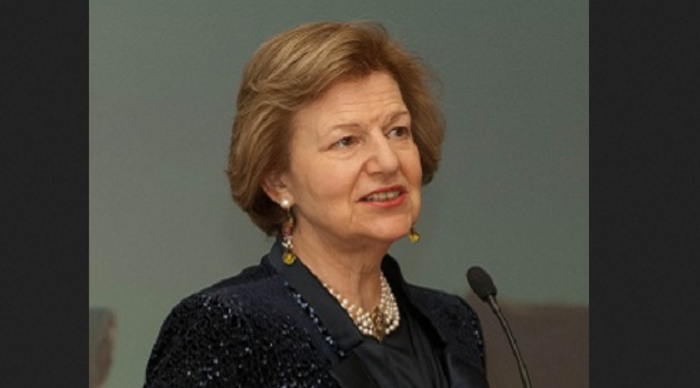Download PDF :


SupChina February 13, 20180
The Maldives, a small nation of little more than 400,000 in the Indian Ocean, is playing an outsize role in Chinese foreign policy. The Associated Press (AP) reports:
Malé, the Maldives capital, has traditionally been close to New Delhi, but a reversal toward Beijing started with a change of power in 2013.
The change in power also meant authoritarian retrenchment, as the Maldives’ first democratically elected leader — Mohamed Nasheed — was succeeded by Yameen Abdul Gayoom, the half brother of Maumoon Abdul Gayoom, a strongman who previously ruled the island for three decades.
Nasheed is now exiled in Britain: After a politicized trial landed him in prison, he found asylum abroad.
But Nasheed was exonerated by the Maldives Supreme Court on February 1, along with eight other political figures, plunging the nation into political crisis, Reuters reports.
Yameen visited Beijing last December, signing “a free-trade agreement that eliminated most tariffs on Maldivian exports, primarily fish, and opens the island nation to Chinese goods and services, including in finance, health care and tourism.”
The former leader, Nasheed, is now speaking out against Chinese influence in the Maldives, and calling on India for help with political stability.
“Massive debts threaten to force Maldives to cede territory to China as early as 2019,” the Nikkei Asian Review reports (paywall) that Nasheed believes, adding a direct, searing quote from the former leader: “Without firing a single shot, China has grabbed more land than the East India Company at the height of the 19th century.”
According to Nasheed, the island nation owes China $1.5 to 2 billion in loans, but takes in a monthly government revenue of less than $100 million.
If the debts aren’t paid in the coming years, the Maldives could end up in a similar situation to Sri Lanka, which leased a port to China for 99 years upon failing to pay its debts in December.
“On behalf of Maldivian people we humbly request: 1. India to send envoy, backed by its military, to release judges & pol. detainees inc. Prez. Gayoom. We request a physical presence,” Nasheed tweeted on February 6, calling for India to intervene to end the political crisis.
India “would like to see Yameen replaced, but it is not sure how to do that…India’s primary concern is not to restore democracy, but rather to reduce China’s influence in the country,” an Australia-based expert on Indian Ocean strategic affairs told AP.
China needs more babies, but who will make them?
“One big concern is that officials may end up trying to nudge busy and ambitious women into accepting more domestic roles. Leta Hong Fincher, an author and academic, argues that state media have helped popularize the concept of ‘leftover women’ — a pejorative term for unmarried females in their mid-20s and later — in an effort to panic educated, urban Chinese into settling down sooner than they otherwise would. She thinks such propaganda is growing more aggressive. If that is indeed the kind of solution that is gestating within the bureaucracy, the hoped-for baby boom will be stillborn.”
Legal un-reform
“Constitutional changes proposed this month would create a National Supervision Commission that would widen the scope of the party’s authority over all civil servants, whether party members or not, without including any of the protections encoded in Chinese civil law. As such, a civil servant suspected of taking a bribe would be entitled to fewer legal protections than an accused murderer.”
 U.K. PM'S TRADE ENVOY TO VISIT AZERBAIJAN
The Caucasus and Turkish-Armenian Relations
14.02.2018
U.K. PM'S TRADE ENVOY TO VISIT AZERBAIJAN
The Caucasus and Turkish-Armenian Relations
14.02.2018




























